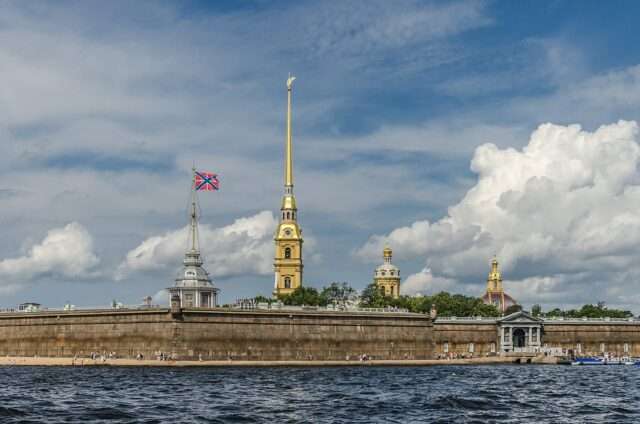
The terrorist attack in St. Petersburg highlighted security concerns in the Russian Federation and the terrorist organisations’ ability to target Russian territory.
On December 27th, 2017, a bomb exploded in a supermarket in the Russian city of St. Petersburg, injuring ten people and raising concerns over terrorist attacks in the Russian Federation, where the next summer will be organised the 2018 FIFA World Cup.[1]
The Russian authorities stated that the bomb was a ‘homemade explosive device’ with a strength of about half a pound of TNT. It detonated in a locker at a Perekryostok supermarket northeast of St. Petersburg. Local witnesses reported that the bomb destroyed the supermarket door and left a hole in the wall. Ten people were hospitalised, including one in critical condition.
The authorities initially claimed that the bomb was a murder attempt. Later Russian President Vladimir Putin, during his meeting with the officers who participated in the military operation in Syria, stated that the explosion in St. Petersburg was a terrorist attack. [2]
Ten days ago, Putin publicly thanked U.S. President Donald Trump and CIA Director Mike Pompeo for a tip which helped the Russian authorities to prevent a terrorist attack in St. Petersburg at the Kazan Cathedral in the city centre.
Russia’s security, terrorist threat and future events
St. Petersburg is the second largest city in the Russian Federation, a cultural centre and the ‘Russian window” to Europe. In April 2017, an explosion targeted the metro between Sennaya Ploshchad and Tekhnologichesky Institut stations killing 16 people, including the perpetrator, a Russian citizen from Uzbekistan.
In October 2017, the Islamic State threatened the Russian Federation with explosions during the 2018 FIFA World Cup publishing banner in English and Russian. In June-July 2018, Russia will host this international event organising football matches in 11 cities and attracting millions of visitors and supporters worldwide.[3]
The Islamic State’s threats in the Russian language related to the World Cup correlate with what happened before the 2014 Sochi Winter Olympic Games. Indeed, in 2013 Doku Umarov, leader of Imarat Kavkaz (a terrorist organisation founded in 2007 aiming to create an emirate in the North Caucasus), threatened the Russian government by calling a jihad against the Olympic Games. As a consequence of this ‘declaration of war, explosions occurred in Volgograd at the end of 2013, alarming international public opinion about the security in Russia.
Even nowadays, there are general concerns about security in Russia because the Islamic State and other terrorist organisations have proved their ability to conduct attacks on Russian soil. During this summer, Furat Media, the Russian-language Islamic State’s media channel, released a two-part video titled Convoy of the Martyrs, where one of the fighters of the Islamic State, Abu Abdul Aziz al-Shishani (the Chechen), threatened the Russian Federation with a new wave of jihad in the North Caucasus.[4]
Conclusion
Although the Islamic State has lost a significant portion of the caliphate’s territory and its main strongholds (Raqqa and Mosul), its propaganda still threatens international security. Since the caliphate’s decline, the Islamic State has changed its strategic communication focusing on ‘the war against the enemies’ and urging its supporters to organise terrorist attacks on the European and Russian soils.
Sources
[1] RBC (2017) Взрыв в магазине в Санкт-Петербурге. Что известно на данный момент. Link: https://www.rbc.ru/society/27/12/2017/5a43e1759a79479eaa7b94f0
[2] RIA Novosti (2017) Путин назвал взрыв в Петербурге терактом. Link: https://ria.ru/20171228/1511871954.html
[3] Ramazan Alpaut (2017) ИГИЛ угрожает ударить по футболу, Kavkaz Reali. Link: https://www.kavkazr.com/a/igil-ugrozhaet-futbol/28802174.html
[4] Fatima Tlis (2017) Что происходит с русскоязычной пропагандой «Исламского государства»?, Golos Ameriki. Link: https://www.golosameriki.com/a/is-propaganda-in-russia/3955011.html
Author: Giuliano Bifolchi.



